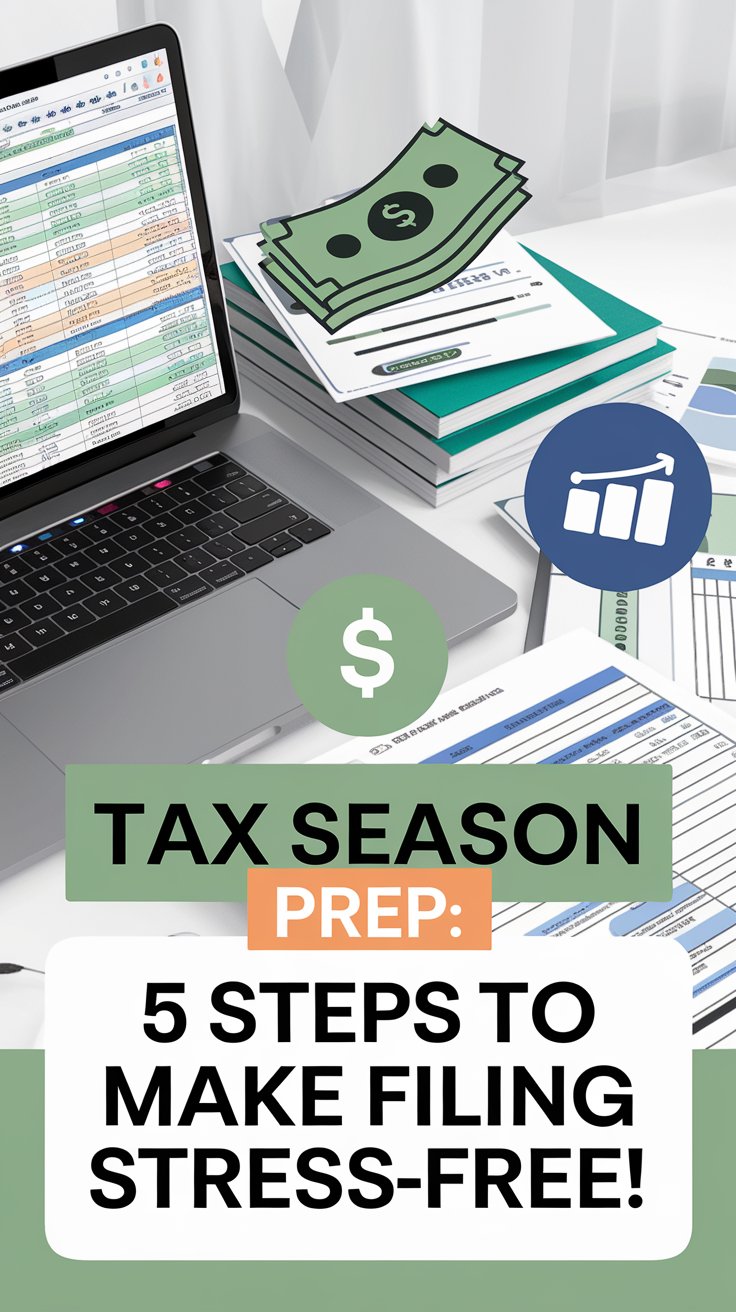Tax season can feel overwhelming for small business owners, but it doesn’t have to be. With a little planning and organization, you can tackle your taxes with confidence and even free up time to focus on growing your business. Here are five simple steps to ensure a smooth, stress-free filing season.
1. Organize Your Financial Records Early
Instead of waiting until the last minute, start gathering your financial documents well before the tax deadline. This includes receipts, invoices, bank statements, and any other relevant paperwork.
Why It Matters:
- Reduces the chance of overlooking important deductions.
- Helps you catch errors or missing transactions before it’s too late.
- Allows you to spot patterns or discrepancies in your finances.
Pro Tip: Use cloud-based storage or bookkeeping software to keep all your documents in one place, making it easy to find what you need when tax time comes.
2. Separate Personal and Business Finances
If you haven’t already, open a dedicated business bank account and credit card. Mixing personal and business expenses can lead to confusion and missed opportunities for deductions.
Why It Matters:
- Simplifies bookkeeping and reduces errors.
- Makes it easier to prove which expenses are truly business-related.
- Streamlines your records, so you spend less time sifting through transactions.
3. Know Your Deductions
From home office expenses to mileage tracking, there are numerous deductions available to small business owners. Take time to research which ones apply to you, and keep detailed records to back up your claims.
Why It Matters:
- Properly claimed deductions can significantly reduce your tax liability.
- Ensures you don’t pay more than you owe.
- Minimizes the risk of an audit by having documentation ready.
Pro Tip: Consult a tax professional or bookkeeper to identify every deduction you’re eligible for. They can also provide guidance on best practices for recordkeeping.
4. Reconcile Your Accounts Regularly
Make it a habit to reconcile your bank statements and credit card transactions each month. This ensures your financial records match what’s in your accounts, making tax filing much smoother.
Why It Matters:
- Catches discrepancies early, preventing bigger issues down the road.
- Keeps your books current, so you’re always tax-ready.
- Saves you from a last-minute scramble when the filing deadline approaches.
5. Consider Professional Help
If tax season still feels overwhelming, it may be worth hiring a professional bookkeeper or accountant. They can ensure your records are accurate, help you spot potential deductions, and file your taxes correctly and on time.
Why It Matters:
- Frees up your time to focus on revenue-generating tasks.
- Reduces the risk of costly errors or missed deadlines.
- Provides peace of mind, knowing an expert has your back.
Final Thoughts
Tax season doesn’t have to be a stressful time for small business owners. By organizing your records early, separating your finances, knowing your deductions, staying on top of reconciliations, and considering professional help, you can breeze through tax filing with confidence. Implement these steps now, and you’ll not only reduce stress but also position your business for greater financial success.
Need an Extra Hand?
If you’d like support with any of these steps, consider reaching out to a professional bookkeeper. They’ll help you navigate tax season with ease and keep your business on track year-round.
